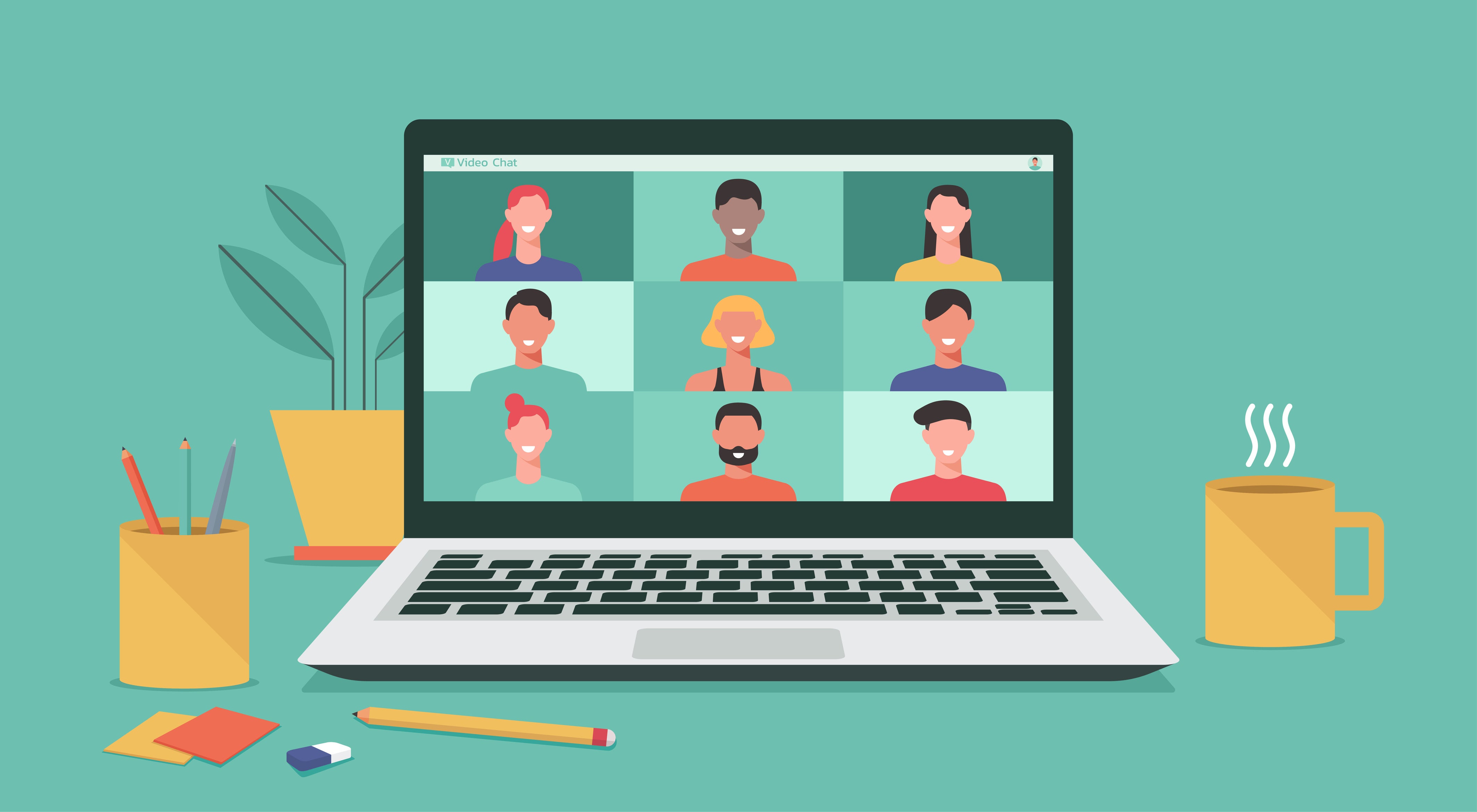Should we schedule time during work to just do nothing?
Remote office hours are becoming a permanent fixture in many of our lives, and experts think flexibility should be here to stay too, writes Taylor Trudon

Your support helps us to tell the story
From reproductive rights to climate change to Big Tech, The Independent is on the ground when the story is developing. Whether it's investigating the financials of Elon Musk's pro-Trump PAC or producing our latest documentary, 'The A Word', which shines a light on the American women fighting for reproductive rights, we know how important it is to parse out the facts from the messaging.
At such a critical moment in US history, we need reporters on the ground. Your donation allows us to keep sending journalists to speak to both sides of the story.
The Independent is trusted by Americans across the entire political spectrum. And unlike many other quality news outlets, we choose not to lock Americans out of our reporting and analysis with paywalls. We believe quality journalism should be available to everyone, paid for by those who can afford it.
Your support makes all the difference.Before the pandemic emptied offices and turned dining tables into desks, getting a midday haircut or heading out for 5pm therapy could involve a bit of clandestine choreography: clearing one’s schedule of meetings, finding a friend to cover, then slipping out while the boss was away.
That dance came to a halt in March 2020. And in the absence of commutes and face-to-face conferences, some white-collar workers began defining their own hours, sneaking in grocery runs, medical appointments and naps between job tasks.
Many others found those blocks of reclaimed time quickly filled by new responsibilities, like child care and nursing sick relatives back to health. But the mere existence of such hours raised other questions: how scheduled should a person be? And should relaxation – including and beyond the lunch break – have an official place in the 9-to-5?
Throughout the pandemic, well-heeled employers have offered their charges all kinds of benefits and perks tied to wellbeing: extra paid time off for parents, free access to therapy apps, Peloton bikes. But what some employees have become most accustomed to is the sense that they can work their hours and block off the rest as unavailable.
Now that widespread vaccination in some countries has brought many bodies back to physical offices, and companies still operating remotely have accelerated their return-to-office plans, some workers are wondering: where will all that time go now? And can I get it back?
‘Me’ time on company time
Kaianne Sie-Mah, a 31-year-old design strategist, used to feel guilty taking time for herself during business hours. “When I first started working and a friend was in town, I’d be afraid to book time to go to lunch with them for more than 45 minutes,” she says.
Now is the perfect time to set new rules, new routines and new ways of working because we’re in this phase of habit disruption
But when her office went remote in 2020, her perspective shifted. “The personal time we’re seeking for ourselves – like taking a nap, getting a manicure, taking a shower, or doing a workout during the day – I think that’s akin to being in an office and getting caught up in a conversation with someone at the coffee machine for an hour, which would happen before the pandemic all of the time and no one would really question it.”
Now she’ll FaceTime friends during the day as a stand-in for that casual socialisation. “We don’t have that gossipy time we used to have with work friends anymore,” she says. “We’re all kind of sitting by ourselves now.”
People are also budgeting time to avoid social interactions. Amber Schreiner, for instance, says that when she started working from home last year, her days were soon filled with back-to-back video calls.
“As an introvert, it freaked me out,” says Schreiner, 32, who runs a social media and digital strategy agency. “I didn’t realise how exhausted I was from being on these Zoom calls.”
Around six months into the pandemic, Schreiner began blocking off more time on her work calendar to decompress. Today, she’ll reserve anywhere from 30 minutes to an hour between meetings – to do absolutely nothing.

“I might literally go get back under the covers for 30 minutes and scroll through Instagram,” she says.
At Twitter in New York City, where Nico Gendron, 28, works on the community team, employees are given designated “perch time”.
“It’s an hour a day where you can do laundry or go get a manicure or crawl into bed,” Gendron says. “Really, whatever you wanted to do, no questions asked.”
Against hustle culture
Of course, stepping away from work can be easier said than done.
“We live in a culture that wants us to push, push, push all of the time,” says Laurie Santos, a professor of psychology at Yale and a host of the Happiness Lab podcast. “The body really wasn’t meant to do that. We need sleep, we need rest, we need time off.”
“It makes sense that people want to take chunks of free time in secret,” she continues. “We have a culture that acts like something is wrong with that – that you must not be a good worker if you want to take a half an hour break or a quick nap during the day.”
Despite employees in all sorts of industries citing burnout, hustle culture continues to be glorified. But Ashley Whillans, a Harvard Business School professor and the author of Time Smart: How to Reclaim Your Time and Live a Happier Life, thinks we could be at a turning point.

“Now is the perfect time to set new rules, new routines and new ways of working because we’re in this phase of habit disruption,” Whillans says. “We completely changed our working model for the last year, and we would be doing a disservice to ourselves if we just immediately went back to the way things were before.”
Whillans notes that now is the time to negotiate for time off and remote flexibility, just as one would negotiate for pay, benefits or job resources.
“If the team that’s in the office is going to check out at 6pm, make it an explicit goal that the team members who are working from home also get to check out at 6pm,” Whillans says. “Why should they be working later just because they didn’t come into the office that day?”
According to Whillans, clear communication about expectations and holding these conversations in public will be key to implementing real change. And if employers don’t adapt? Whillans predicts many people – especially millennials and young working parents – will quit.
“Now that we’ve got a taste of that, there’s no going back and companies who operate as if the world has not changed are those who will lose out on the war for talent,” she says.

New ways of working
With all adults in the US eligible for vaccination, companies are outlining firmer plans for the offices of the future. Some, like REI and Dropbox, are fully embracing virtual work and abandoning physical office spaces altogether. Spotify has introduced a “working from anywhere” program.
Loni Poon, 33, who works at a tech company, believes these changes will be seen as more acceptable in the workforce even if companies don’t switch to fully remote.
“I come from a generation of workers where this has been the norm for me pretty much since the beginning of the career,” she says. “If anything, I view this as an accelerator to everyone catching up to this type of working environment.”
Other companies are taking small but meaningful steps. Ferguson Enterprises, a large wholesale distributor of residential and commercial plumbing supplies in the US, is working to create as much flexibility as possible for employees. Some employees may operate on a hybrid schedule, others may sign up for a job share or even work remotely permanently if their roles allows it.
And though the hybrid model may seem like an ideal solution for employees, it still leaves many out.
“If you’re a young parent and you’re staying home primarily so you can take care of the kids, are you going to miss out on those hallway interactions that are so critical for promotions?” Whillans says. She also cites new graduates as another group that has been adversely affected by remote work; without a physical office space, she says, there have been fewer opportunities for them to develop friendships with colleagues and find mentorship opportunities.
For Schreiner, the digital strategist, the remote setup has changed her work life for the better.
“If I’m not going to get burned out by the time I’m 35, I have to schedule these times of doing nothing,” she says.
This article originally appeared in The New York Times.




Join our commenting forum
Join thought-provoking conversations, follow other Independent readers and see their replies
Comments